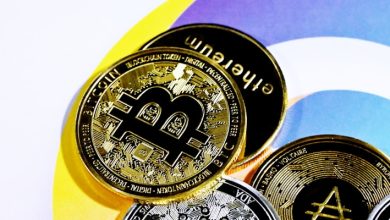The Role of Social Tokens in Building Community-Driven Economies

- Understanding the concept of social tokens
- Exploring the impact of social tokens on community engagement
- Case studies of successful community-driven economies using social tokens
- Challenges and opportunities in implementing social tokens in community building
- The role of social tokens in incentivizing participation and contribution
- Future trends and developments in the use of social tokens for building community-driven economies
Understanding the concept of social tokens
Social tokens are a novel concept that has gained popularity in recent years. These tokens are a form of digital currency that is unique to a specific community or platform. They can be used for various purposes within the community, such as voting on governance issues, accessing exclusive content, or participating in community events.
One of the key aspects of social tokens is that they are community-driven. This means that the value of the tokens is determined by the members of the community rather than by external factors such as market forces. This creates a sense of ownership and belonging among community members, which can help to strengthen the bonds between them.
By using social tokens, communities can create their own economies that are based on shared values and interests. This can help to empower community members and give them a sense of control over their own destinies. Additionally, social tokens can be used to incentivize positive behaviors within the community, such as contributing content, helping other members, or participating in community events.
Overall, social tokens have the potential to revolutionize the way that communities interact and collaborate online. By understanding the concept of social tokens and how they can be used to build community-driven economies, we can create more inclusive and sustainable online communities that benefit everyone involved.
Exploring the impact of social tokens on community engagement
Social tokens have been shown to have a significant impact on community engagement within decentralized economies. These tokens serve as a means of incentivizing active participation and contribution from community members, ultimately fostering a sense of belonging and ownership within the community. By rewarding users with tokens for their engagement, communities can encourage collaboration, knowledge sharing, and overall growth.
When users are able to earn and exchange social tokens within a community-driven economy, they are more likely to feel valued and invested in the success of the community as a whole. This increased sense of ownership can lead to higher levels of engagement, as users are motivated to contribute their time, skills, and resources to help the community thrive. In this way, social tokens play a crucial role in building strong, resilient communities that are driven by the collective efforts of their members.
Furthermore, social tokens can also help to establish a more equitable distribution of value within a community-driven economy. By rewarding users based on their contributions, rather than their existing wealth or status, social tokens can help to level the playing field and ensure that all members have the opportunity to benefit from their participation. This can lead to a more inclusive and diverse community, where everyone has a voice and a stake in the community’s success.
Case studies of successful community-driven economies using social tokens
Social tokens have been instrumental in driving successful community-driven economies in various regions around the world. Let’s take a look at some case studies that demonstrate the power of social tokens in fostering economic growth and community engagement:
1. **The Brooklyn Microgrid**: One notable example is the Brooklyn Microgrid, where residents can trade energy using a social token called the Brooklyn Microgrid Token. This system allows for decentralized energy trading within the community, reducing reliance on traditional energy providers and promoting sustainability.
2. **The La’Zooz Network**: Another example is the La’Zooz Network, a decentralized ridesharing platform that uses a social token called Zooz. By rewarding users with Zooz tokens for participating in the network, La’Zooz has created a vibrant community of users who are incentivized to contribute to the platform’s success.
3. **The Steemit Social Network**: Steemit is a social network that rewards its users with Steem tokens for creating and curating content. This incentivizes users to engage with the platform and contribute valuable content, ultimately driving the platform’s growth and success.
4. **The Circles UBI Project**: The Circles Universal Basic Income (UBI) project is an experiment in using social tokens to distribute a basic income to participants. By creating a network of trust-based connections, Circles enables users to transact with each other using a social token that represents their social capital.
These case studies highlight the diverse ways in which social tokens can be used to build thriving community-driven economies. By incentivizing participation and collaboration, social tokens have the potential to transform traditional economic models and empower communities to take control of their own financial destinies.
Challenges and opportunities in implementing social tokens in community building
Implementing social tokens in community building presents both challenges and opportunities that organizations need to consider. These digital assets can enhance engagement and foster a sense of belonging among community members. However, there are also obstacles that must be overcome to ensure successful implementation.
One of the challenges in utilizing social tokens is the complexity of designing a token economy that aligns with the values and goals of the community. Organizations must carefully consider the distribution, utility, and governance of these tokens to create a system that incentivizes positive behavior and participation.
Another challenge is the potential for token manipulation and fraud within the community. Organizations must implement robust security measures to protect the integrity of the token economy and prevent malicious actors from exploiting vulnerabilities.
Despite these challenges, there are significant opportunities in leveraging social tokens for community building. These tokens can incentivize collaboration, reward contributions, and facilitate the exchange of value within the community. By carefully designing tokenomics, organizations can create a vibrant ecosystem that encourages active participation and growth.
Furthermore, social tokens can democratize access to resources and opportunities within the community, empowering individuals to take control of their own economic destiny. This can lead to greater inclusivity, diversity, and sustainability in community-driven economies.
The role of social tokens in incentivizing participation and contribution
Social tokens play a crucial role in incentivizing participation and contribution within community-driven economies. These tokens serve as a form of digital currency that community members can earn by actively engaging in various activities. By rewarding individuals with social tokens, communities can motivate them to participate more actively in discussions, sharing knowledge, and creating valuable content.
The use of social tokens creates a sense of ownership and belonging among community members, as they are rewarded for their contributions. This, in turn, fosters a sense of community and encourages collaboration among members. Additionally, social tokens can be used to recognize and reward individuals who go above and beyond in their contributions, further incentivizing participation.
Furthermore, social tokens can be used to create a self-sustaining economy within the community. As members earn tokens for their contributions, they can use them to access exclusive content, services, or products within the community. This not only adds value to the tokens but also encourages members to continue participating and contributing to the community.
In conclusion, social tokens play a vital role in building community-driven economies by incentivizing participation and contribution. They create a sense of ownership, foster collaboration, and help create a self-sustaining economy within the community. By rewarding members for their contributions, social tokens encourage active engagement and help build stronger and more vibrant communities.
Future trends and developments in the use of social tokens for building community-driven economies
Looking ahead, there are several future trends and developments that we can expect to see in the use of social tokens for building community-driven economies. One of these trends is the increased integration of social tokens into existing social media platforms. As more platforms recognize the value of social tokens in incentivizing and rewarding community engagement, we can anticipate a rise in the number of social tokens being used across different social media channels.
Another trend to watch for is the development of more sophisticated governance models for social tokens. As communities continue to explore new ways of utilizing social tokens to govern themselves and make decisions collectively, we may see the emergence of innovative governance structures that are specifically tailored to the needs of each community.
Furthermore, we can expect to see a growing emphasis on interoperability between different social tokens and blockchain networks. This interoperability will allow social tokens to be easily exchanged and used across multiple platforms, creating a more seamless experience for users and enabling the growth of larger, interconnected communities.



